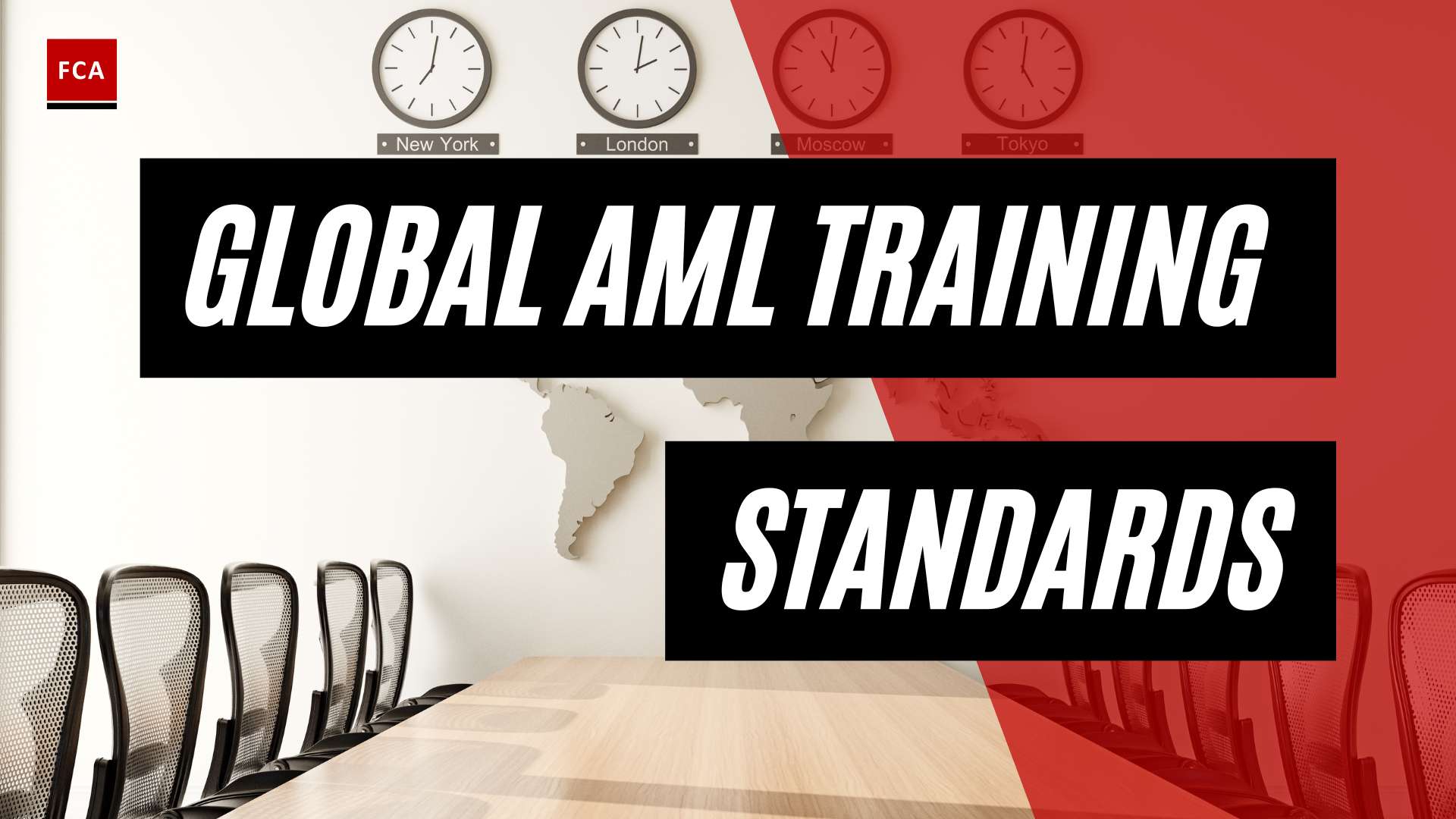AML Manager Salaries: An Overview
When it comes to compensation in the field of Anti-Money Laundering (AML), AML managers often earn high salaries due to the level of responsibility and advanced skill set required for the position. AML managers play a crucial role in ensuring compliance with regulatory requirements and protecting organizations from financial crimes. In this section, we will provide an introduction to AML manager salaries and highlight the factors that influence them.
Introduction to AML Manager Salaries
As of 2021, the average annual salary for AML managers ranges from $105,000 to $120,000 per year, according to Franklin University. However, it’s important to note that AML manager salaries can vary based on several factors such as location, industry, experience, and education.
Factors Affecting AML Manager Salaries
Several factors influence the salaries of AML managers. These factors include:
Location
The geographical location where an AML manager works can significantly impact their salary. Salaries may vary based on the cost of living, demand for AML professionals, and local market conditions. For example, the average salary for an AML manager in the United States is $104,000 per year as of April 06, 2022, according to ZipRecruiter. However, it’s important to consider that salaries can range from $30,000 to $156,000 per year in the United States, depending on various factors such as experience, education, and skills (Indeed).
Education and Experience
The level of education and experience an AML manager possesses can significantly impact their earning potential. Advanced degrees, such as a Master’s in Business Administration (MBA) or a Certified Anti-Money Laundering Professional (CAMP) certification, can enhance an AML manager’s qualifications and potentially lead to higher salaries. Additionally, years of experience in the AML field, particularly in leadership roles, can contribute to increased earning potential.
Industry and Company Size
The industry in which an AML manager works can also influence their salary. Certain industries, such as banking and financial services, may offer higher salaries compared to other sectors. Furthermore, the size and complexity of the organization can play a role in determining an AML manager’s compensation. Larger organizations with extensive AML programs and greater regulatory scrutiny may offer more competitive salaries to attract experienced professionals.
Additional Compensation
In addition to base salaries, AML managers may be eligible for additional compensation such as bonuses, profit-sharing, or performance incentives. These forms of compensation can vary depending on the organization’s policies, financial performance, and the individual’s contributions to achieving AML objectives.
Understanding the various factors that influence AML manager salaries is essential for professionals considering a career in AML or aiming to advance in the field. By considering factors such as location, education, experience, and industry, individuals can gain insights into the salary ranges and make informed decisions regarding their career progression in the AML domain.
In the following sections, we will delve deeper into the average salaries for AML managers, the factors influencing these salaries, and the promising career prospects in the AML field.
Average Salaries for AML Managers
To gain insights into the compensation of AML managers, it is important to understand the average salaries for these professionals, as well as the factors that can influence their earnings.
National Average Salary for AML Managers
As of April 2022, the average salary for an AML Manager in the United States is approximately $104,000 per year ZipRecruiter. However, the salary range for AML managers can vary significantly, depending on factors such as location, education, skills, and experience Indeed.
Regional Variations in AML Manager Salaries
The average salary for AML managers can differ across regions. For instance, in New York, the average annual salary for AML managers is around $108,247, which is approximately 13% higher than the national average ZipRecruiter. Top earners in New York can make over $162,218 annually, while those at the lower end of the spectrum may earn around $61,938 per year ZipRecruiter. It is important to note that salaries for AML managers in New York have experienced a 1.3% increase since 2017, with a 0.7% increase from 2020 to 2021 ZipRecruiter.
Impact of Experience and Education on AML Manager Salaries
The experience and education levels of AML managers can significantly impact their salaries. Entry-level AML managers typically earn around $79,002 per year, while those with extensive experience can earn up to $152,972 per year Salary.com. It is important to note that these figures represent the average salaries for AML managers, and individual salaries may vary based on factors such as job performance, industry, and employer size.
When considering a career as an AML manager, it is crucial to bear in mind that salaries can vary based on a range of factors. It is advisable to conduct thorough research and refer to AML salary surveys for the most up-to-date salary information.
Understanding the average salaries for AML managers provides valuable insights into the earning potential within this field. However, it is important to consider that compensation is influenced by various factors, including certifications, company size, and additional forms of compensation. These factors will be further explored in the following sections.
Factors Influencing AML Manager Salaries
When it comes to determining the salary of an AML Manager, several factors come into play. Understanding these factors can provide insights into the compensation structure within the anti-money laundering field. Let’s explore the importance of certifications, the role of company size, and additional compensation for AML Managers.
Role of Company Size in AML Manager Salaries
The size and prestige of the organization can significantly affect the salary of AML Managers. Larger organizations or those with a high-profile reputation often offer higher salaries to attract and retain top talent. These organizations may have larger compliance departments with greater responsibilities, leading to increased compensation for AML Managers. Conversely, smaller organizations may have more limited resources and a smaller compliance team, resulting in comparatively lower salaries.
It’s important for AML Managers to consider the company size and its impact on salary when evaluating job opportunities. Factors such as the level of responsibility, the complexity of compliance programs, and the potential for career growth can also vary based on the size of the organization.
Additional Compensation for AML Managers
In addition to base salaries, AML Managers may receive additional compensation in the form of bonuses, profit-sharing, or commission. These additional benefits can significantly impact the total compensation package. The amount of additional compensation can vary based on factors such as individual performance, company performance, and industry trends.
According to Salary.com, the additional compensation for AML Managers can range from $4,748 to $14,308, with an average bonus standing at $10,093. It’s important to note that the availability and amount of additional compensation may vary depending on the organization and its compensation policies.
Understanding the factors that influence AML Manager salaries can help professionals in the anti-money laundering field make informed decisions about their career paths and compensation expectations. By considering the importance of certifications, the role of company size, and the potential for additional compensation, AML Managers can navigate the job market with confidence and negotiate fair and competitive salary packages.
Career Prospects and Demand for AML Managers
As the field of anti-money laundering (AML) continues to gain prominence, the career prospects for AML managers are increasingly promising. AML managers play a crucial role in ensuring compliance with regulations and preventing financial crimes. Let’s explore the career prospects and high demand for AML professionals.
Promising Career Prospects in AML
The rising concerns over security and the need to combat financial crimes have led to a significant demand for professionals with expertise in AML. This demand has created excellent career prospects for individuals considering a career in anti-money laundering. The field offers opportunities for growth and development, with various roles available at different levels, such as AML analysts, AML specialists, and AML directors.
AML managers, in particular, have promising career prospects due to their extensive knowledge and experience in managing AML programs. These professionals are responsible for overseeing compliance efforts, developing risk mitigation strategies, and ensuring that financial institutions adhere to AML regulations.
As the financial industry continues to evolve, the demand for AML managers is expected to remain high. Financial services employers often struggle to find qualified AML specialists, intensifying the demand for talent in this area (Tandym Group). A career in AML offers stability, growth potential, and the opportunity to make a meaningful impact in the fight against financial crimes.
High Demand for AML Professionals
The demand for AML professionals remains strong, reflecting the critical role they play in safeguarding financial systems. AML specialists have been in high demand due to increasing concerns over security, making it a sought-after field in the current job market. The growth of the financial services industry and the need for compliance professionals have further fueled the demand for AML professionals (Tandym Group).
Financial institutions, including banks, insurance companies, and investment firms, require AML professionals to navigate the complex regulatory landscape and mitigate the risks associated with money laundering and financial crimes. AML managers, with their expertise and leadership skills, are highly sought after to develop and implement robust AML programs.
As technology advances and criminals find new ways to exploit financial systems, the demand for AML professionals continues to grow. This demand ensures a steady stream of job opportunities and competitive salaries for AML managers. Professionals entering or transitioning into the field of AML can expect a rewarding career path with ample opportunities for growth and advancement.
To explore salary insights and compensation trends in the AML field, check out our AML salary survey and AML salary guide. These resources provide valuable information on the salaries and compensation packages offered to AML professionals across different roles and experience levels.
By pursuing a career in AML management, individuals can capitalize on the promising career prospects and high demand for professionals in this field. With the opportunity to make a meaningful impact and contribute to the integrity of the financial system, AML managers play a vital role in the fight against financial crimes.
Average Salaries for AML Managers
When it comes to the salaries of Anti-Money Laundering (AML) Managers, several factors come into play. By examining the average salaries for AML Managers, we can gain insights into the compensation trends in this field.
National Average Salary for AML Managers
As of April 2022, the average salary for an AML Manager in the United States is $104,000 per year, according to ZipRecruiter. However, it’s important to note that AML Manager salaries can vary significantly based on factors such as location, education, skills, and experience. According to Indeed, AML Manager salaries in the United States can range from $30,000 to $156,000 per year.
Regional Variations in AML Manager Salaries
Salaries for AML Managers can also vary depending on the region. Certain cities or states may offer higher salaries due to factors such as the cost of living and demand for AML professionals. To get a better understanding of the regional variations, it is recommended to refer to a comprehensive AML salary survey or explore resources specific to your region.
Impact of Experience and Education on AML Manager Salaries
Experience and education play crucial roles in determining the salary potential for AML Managers. As professionals gain more experience and expertise in the field, they often see an increase in their earning potential. Additionally, higher levels of education, such as advanced degrees or certifications, can positively impact salary prospects.
It is worth noting that the average salary range for AML Managers in the United States is reported to be between $99,992 and $145,606 per year, according to Salary.com. The specific salary offered may depend on a variety of factors, including the size and industry of the employing organization, the level of responsibility, and the candidate’s qualifications and experience.
While these figures provide a general overview of AML Manager salaries, it’s important to remember that compensation can vary based on individual circumstances. To get a more accurate understanding of the salary range for AML Managers in your area or specific industry, it is recommended to consult local job market data and salary surveys.
In the next section, we will explore the various factors that can influence AML Manager salaries, including the importance of certifications, the role of company size, and additional compensation opportunities.








